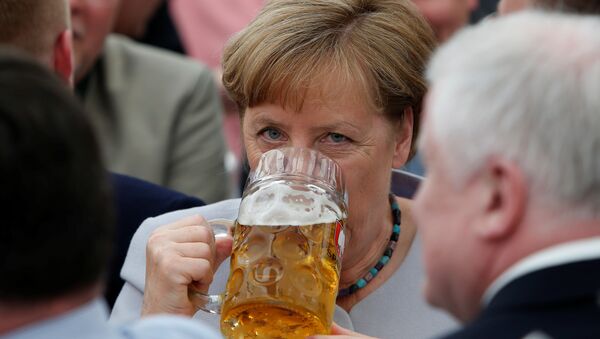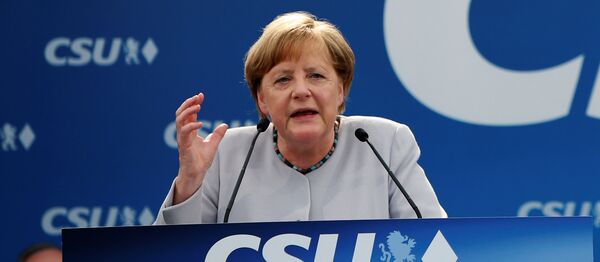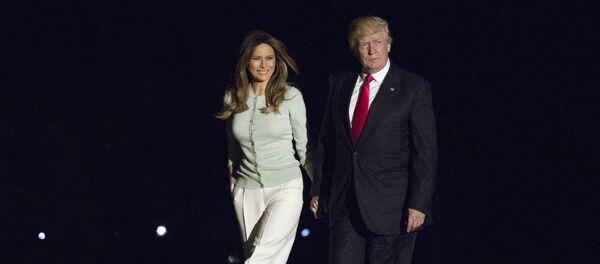Following NATO and G7 summits in Europe last week, on Sunday Merkel attended an election campaign event in Munich along with Hors Seehofer, the leader of the Christian Social Union, the Bavarian-based sister party of the Christian Democratic Union.
Addressing 2,500 visitors to the event, which was held in a beer tent, Merkel shared her impressions about the current state of transatlantic relations.
"The times when we could completely rely on others are somewhat over. This is what I have experienced in recent days," Merkel said.
"We Europeans really need to take our fate into our own hands," she added.
Merkel's remarks were received with a minute's applause by the audience, and were also noted by US media outlets.
For example, the New York Times described her comments as "a potentially seismic shift in trans-Atlantic relations," and Bloomberg said that Merkel's comment "signals a new era for Europe."
"It's possible that the Chancellor is surprised by such a strong reaction, after all, all she has really done is state the obvious: whatever qualities are attributed to US President Donald Trump, reliability is clearly not among them," Engel said.
The context of Merkel's comments, made in the course of campaigning ahead of federal elections in September, also need to be taken into account.
"To be precise, Merkel was speaking not only as German chancellor: above all that was her pre-election speech as the chairman of the Christian Democratic Union (CDU)."
"As Chancellor, Merkel expressed her disappointment with the results of the G7 summit held last weekend, and as party leader, she counted on the fact that criticism of the US and, above all, Trump is the best way to enlist the support of German voters. Her main rivals in the pre-election race — the Social Democrats — have been playing this card for a long time," Engel explained.
"For those who still need proof: if the German Chancellor really wanted to announce the beginning of a new era in relations with the US, she clearly would not have done so in a beer tent during a CSU pre-election event. The head of the German government has too much taste to do that," Engel concluded.
With federal elections in the autumn and a state election slated to take place in Bavaria next spring, Merkel and Seehofer were keen to show unity despite their disagreement about refugees.
"These reconciliation meetings between Merkel and Seehofer remind me of the comeback of Modern Talking: they were also completely estranged and whitewashed over it to sell more records," Social Democratic Party [SPD] General Secretary Katerina Bailey commented.
The latest polls give Merkel's CDU/CSU parliamentary faction a commanding lead over their nearest rivals, the SPD. According to an INSA survey carried out on May 29, 35.5 percent of voters are planning to vote for the CDU/CSU, followed by 26 percent for the SPD.
The liberal Free Democratic Party [FPD] and the leftist Die Linke are supported by ten percent of voters, followed by Alternative for Germany [AfD] with nine percent and the Greens on six percent.





